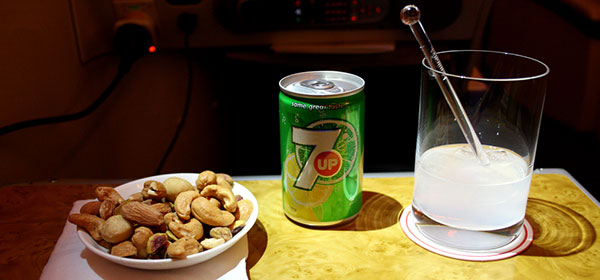Recent events where children and adults have suffered severe reactions while flying have led to a robust debate about whether peanuts should be banned from being served on airplanes.
Peanut and other nut allergies are more common than many may realise, with around three in 20 young children having some type of nut allergy. Many will grow out of this, but around one in 50 children and one in 200 adults (who develop the potentially fatal anaphylaxis in later life) will remain allergic.
When notified that allergic passengers are on board, some airlines will either not serve nuts, will ensure that meals are nut-free or request that passengers don’t eat nuts during a flight.
Qantas and Air New Zealand have banned peanuts from all flights, and some European carriers are also totally nut-free and even ask passengers not to bring them onboard.
But other airlines leave it up to parents, or people with the condition to take proper precaution. This would entail them bringing epinephrine injectors (EpiPens) onboard.
These accounts of reactions and near deaths have led a call for all airlines to stop serving nuts on planes.
An article published on www.abc.net.au has some good examples of how people feel about this issue.
Do you think it’s the responsibility of airlines to stop serving foods that could potentially be fatal? Or do you think it’s a passenger’s responsibility to manage their own allergies?
Related articles:
Prepare for allergy season
Air rage on the rise
Seven secrets to avoiding sickness

